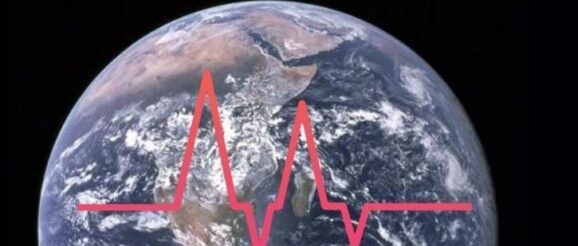Earth Has A ‘Heartbeat’ Of 7.83 Hz, And It Could Affect Human Behaviour – DLIT

In case you didn’t know, flashes of lightning strikesroughly 50 times every second, and results in the formation of low-frequency electromagnetic waves that engulf the entire planet. These are referred to as Schumann Resonances or Earth’s heartbeat and some researchers believe that they can affect human behaviour.
Origin of Earth’s heartbeat
These have been named after Winfried Otto Schumann, in honour of his work on global resonances in the mid-1950s. This was first discovered in the 1960s. The waves were oscillating between greater and lower energy at a base frequency of 7.83 Hz — the frequency that’s also referred to as .
The reason there’s a fluctuation is due to the variations in the ionosphere and the major factor here is the intensity of solar radiation. The ionosphere becomes thinner during the night and is rather thicker during the day.
Another factor that influences the strength of the resonance is the lightning hotspots of the world — in regions like Asia, Africa and South America.
Schumann Resonances could affect humans
Studies in the past ( by BigThink) have suggested that these waves actually have an impact on humans. A has discovered that the frequencies could be linked to different kinds of brain waves. They called this as ‘real-time coherence’ in variations in the Schumann and brain activity spectra within the 6 to 16 Hz band.
, conducted by the Behavioural Neuroscience Laboratory of Canada’s Laurentian University saw 238 measurements from 184 individuals over a period of three and a half years showed strange and unpredictable similarities in the spectral patterns and strengths of electromagnetic fields that were generated by human brain activity and the Earth-ionospheric resonance.
Some have even linked the Schumann Resonance of 7.83 Hz to hypnosis, meditation as well as growth hormones in humans, although there isn’t any concrete scientific evidence supporting these claims.
In the area of ‘new age science,’ many believe that the Schumann Resonance can also be affected by human consciousness. So a global rise in anxiety, tension or stress (much like what occurred during the initial months of the pandemic) could affect the Schumann Resonance. Alternatively, even an unusual spike in these frequencies could have an impact on humans and animals.
While all these sound rather scary, one can ignore them due to the lack of scientific backing behind these theories. But if it were to be proven true in the future, it’s a fascinating concept nonetheless.
